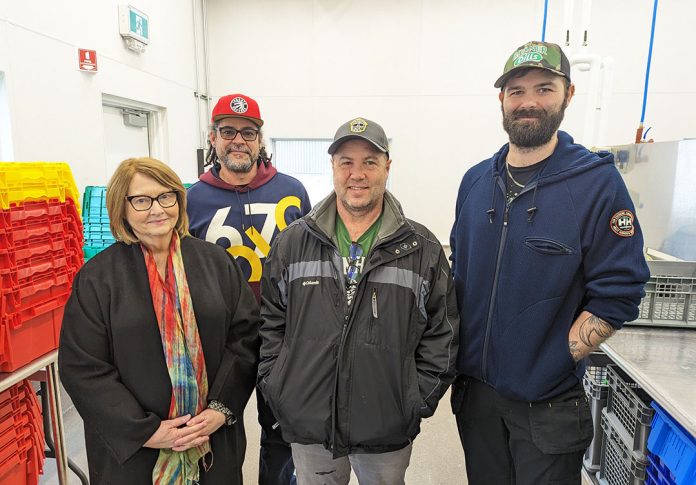For some people, access homegrown, quality food is a challenge.
More than 66,000 people in Durham Region face food insecurity, which is 14 per-cent of householders within the region.
“When we’re talking about food security, we’re looking at not only people being able to access food, but we’re looking at the system that makes that food,” said Durham Food Policy Council (DFPC) secretary Mary Anne Martin.
DFPC has been working towards a sustainable food system in Durham Region since 2010. It has developed projects and strategies to help provide food to those who can’t access it.
“We’re really trying to encompass all the different parts of the food system, which is no small feat,” Martin said.
Durham College is also making an effort across the region to improve food security through its Horticulture – Food and Farming program.
“We’re producing produce for various food banks and various organizations that can use the product that we have to be able to fight the insecurity of food within Durham Region,” said Durham College urban farm manager, Andrew Guay.
Students in this program learn how to plant and harvest food, which goes to both the campus food centre, or to lower income families in marginalized communities who have limited access to quality food.
The program delivers active learning by splitting into lectures and labs. In the lecture, students learn about issues such as food insecurity, while in the labs they get hands-on experience planting and harvesting crops.
“They’re not just learning to grow (crops) and eat it or prepare it, but value them as products and turn them into small businesses,” said professor and program coordinator, Wendy Smith.
Second-year student and urban farm ambassador, Paul Fritzsch, said saving wasted food is another feature of the program.
“We would take things that would normally go into a biodigester or just thrown away as waste and turn them into a value-added product,” he said.
These value-added products range from fresh or frozen foods, sauces or jams.
In the winter, the program takes a more hybrid approach.
Guay said the greenhouse splits up its space for winter, with one half dedicated to labs for each course in the program, and the other half for growing crops.
“We are unfortunately limited in the space we have, so we can’t provide everything that everyone’s looking for, but we help to supplement,” he said.
Despite this, the program still produces enough food for both Bistro ‘67, and for families and communities in need in Durham Region.
One of Durham College’s close partners is Community Care Durham, a charitable organization which supports people 16 or older who need support.
“We will end up growing produce for their food boxes that they produce weekly in the summer months,” said Guay.
Food banks visits increased by 58 per cent from April 2021 to March 2022, according Feed the Need Durham.
Almost two-thirds of those visits in 2022 were related to financial constraints, including high food prices at grocery stores.
Guay said programs such as Horticulture – Food and Farming are making a difference in terms of how to make affordable food more accessible.
“It helps to battle that indirectly because it’s already something that’s in a lot of people’s mindsets,” he said.




